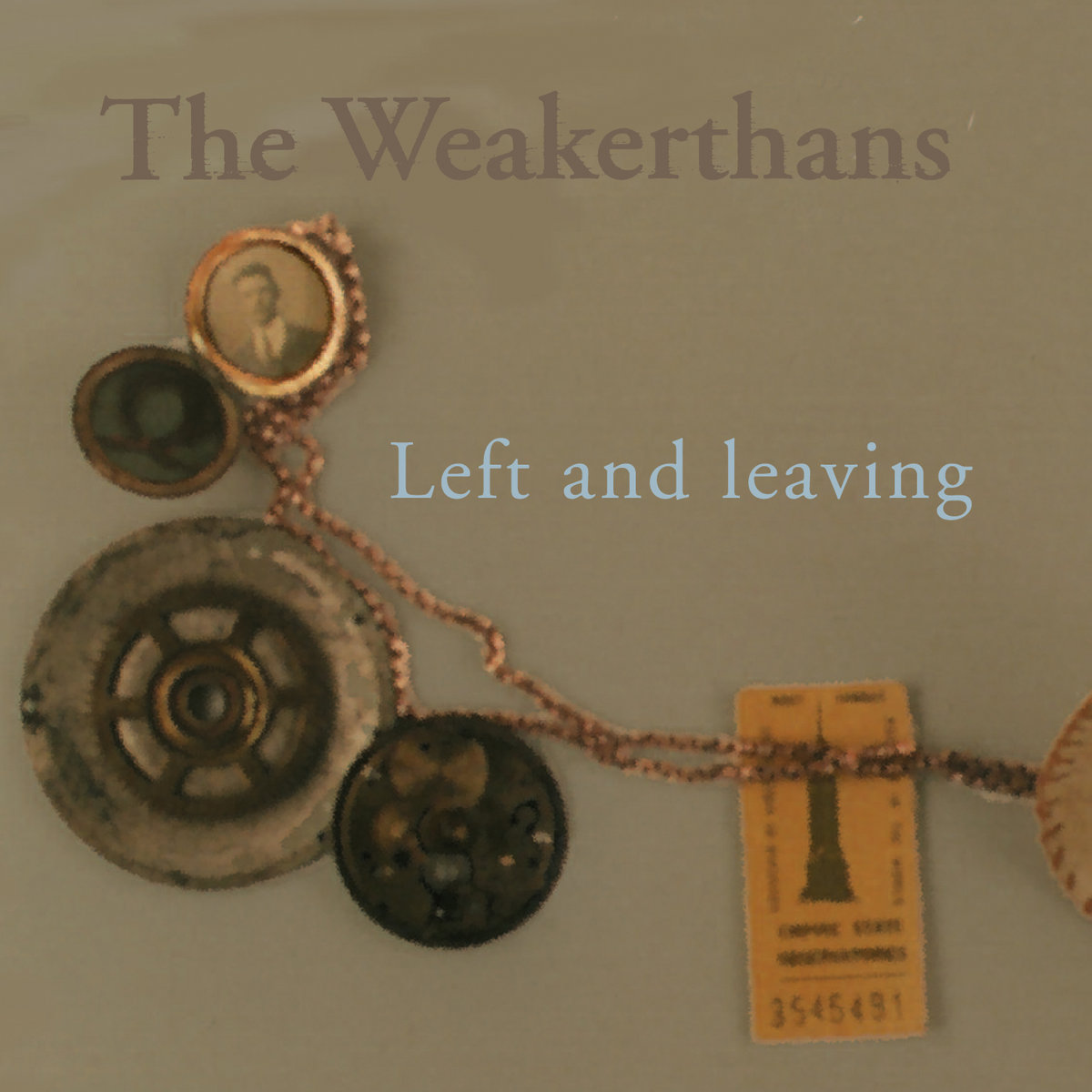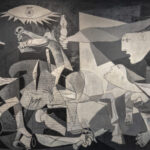It Holds Up: The Weakerthans—’Left and Leaving’
Posted: by The Alt Editing Staff

One of the bands most frequently mentioned in discussing the major influences on the emo revival was The Weakerthans. The Canadian indie rock group were clear touchstones for bands like The Hotelier and Modern Baseball, and their sophomore record was name-dropped in The Wonder Years’ 2010 hit “Everything I Own Fits in This Backpack”. The Weakerthans’ influence didn’t just begin once they faded away; even contemporaries like Polar Bear Club and Motion City Soundtrack covered them (so did The Wonder Years, for that matter). While they never quite gained the purchase of indie rock stalwarts like Death Cab for Cutie or Modest Mouse (at least in the US), they’ve had an immeasurable impact on the genre.
To see why, one must begin with their sophomore record. It’s no surprise that the two most popular Weakerthans covers are of “Left and Leaving”, the title track from their second record. Left and Leaving turned twenty years old last month, and even still, every note feels like a revelation.
What’s immediately apparent about Left and Leaving is that The Weakerthans are a patient band. “Everything Must Go!” opens the album with the furthest thing from a bang; rather, the song starts with a single timid guitar line before John K. Samson begins to sing. And even then, when the full band comes in, they never lets loose. The song just meanders along, always sort of teetering at the edge of a resolution it never provides. The band simmers under Samson as he croons away for four-and-a-half minutes until it all fizzles out. It’s a perfect opener for Left and Leaving that encapsulates the band’s signature traits: mellow, folk-inflected indie rock and Samson’s literary but unpretentious lyrics.
While much of the record deals in that sort of folk-inflected indie rock, The Weakerthans weren’t afraid to try out a number of styles. The paced “Everything Must Go!” gives way to the driving pop-punk of “Aside” and “Watermark,” the only two songs on the album that fall anywhere near the realm of pop. Left and Leaving has a share of stylistic variation, to be sure, but dwells generally in midtempo indie ballads. There are four songs that could really be considered rock songs; the aforementioned “Aside” and “Watermark”, as well as “This Is a Fire Door Never Leave Open” and “Exiles Among You.” The first three of these come in the first half of the record, providing some energy to push the listener into the more brooding second half. “Exiles Among You” is perhaps the most triumphant song on the album, nestled fittingly between two of the sparsest. The song begins as a fairly standard pop rock song before twisting into one of the most dynamic songs on the record, capped off with a pummeling two-minute outro that proves The Weakerthans can just rock when they need to.
It’s a more powerful moment for being so rare on the album. The Weakerthans cut loose so infrequently that the end of “Exiles Among You” feels like a turning point for the album. It’s of course then fitting that the record ends with two of the most reigned-in tracks. “My Favorite Chords” and “Slips and Tangles” resolve in a territory the band toys with here and there on other songs but never fully embrace: alt-country. The bridge of “Fire Door” has a twang to it, and there are shades of country influence in the title track, but it’s only in the album’s final seven minutes that they devote themselves to the style (foreshadowing a more prominent style on follow-up Reconstruction Site).
For most of the record, the band’s sound is closer to that of mid-era Bright Eyes, with just as much indie folk accessibility and just as much left-field quirkiness. There’s “History to the Defeated,” a slow, creeping dirge sung at barely above a whisper, as a reference point for the former. “Without Mythologies” is a curveball take on the same style, an echoing spoken-word folk song. The song is bizarre on first listen, but it works altogether; the distant-sounding instrumentation puts a singular emphasis on Samson’s lyrics, the booming drums serving more as reactions to the narrative—a retelling of the Orpheus and Eurydice myth—than anything else. “Without Mythologies” is the most lyric-driven song on a lyric-driven album, and it’s all the stronger for it.
Certainly one of the appeals of Left and Leaving, and The Weakerthans’ oeuvre as a whole, is Samson’s lyrics. He is, not to put too fine a point on it, a generational talent. He has an incredible way of conveying complex emotions in simple (and deceptively poetic) language. There’s a literary quality to his writing that feels profound and thoughtful but never overwrought. At the same time, there’s always a sense of humor that never veers into ironic detachment. Take “Everything Must Go!” again. The album’s opening line sets up the stakes: “Garage sale Saturday, I need to pay my heart’s outstanding bills.” What follows is a list of what Samson has to offer, ranging from the mundane (“cutlery and coffee cups I stole from all-night restaurants”) to the weightier (“a sense of wonder (only slightly used)”). In only a list of household objects and discarded feelings, Samson is able to tell a story of growing up, becoming jaded, and turning into one of “the broken ones,” with just enough gaps for the listener to put together the details. This is one of the central themes of Left and Leaving, the loss of purpose that comes with growing up and the ways that people cope with it. “Aside” picks up that thread neatly, a portrait of an aimless twenty-something who “relied a bit too heavily on alcohol and irony,” a character as real in 2020 as in 2000 when the song was written.
Another theme of Left and Leaving—one that seems even more relevant now than twenty years ago—is the subtle role that politics plays in life, in ways that people might not even realize. In “My Favorite Chords,” Samson offhandedly mentions that “the mayor’s out killing kids to keep taxes down,” a reference to the way that all political decisions have a human cost. It sounds melodramatic, but really it’s just more honest than most would be. The most obvious example is probably “Pamphleteer,” in which Samson twists famous left-wing slogans to reflect his own life and personal struggles. Where Karl Marx wrote of “a spectre haunting Europe,” for Samson, “a spectre is haunting Albert Street,” a local road in Winnipeg. The same gravity is given to a lost relationship as a world-historical political struggle; he references the labor union anthem “Solidarity Forever” later on, asking, “which force on Earth could be weaker than the feeble strength of one like me remembering the way it could’ve been?” The original song stops at “the feeble strength of one”; in extending the line, Samson is universalizing his own experiences of loneliness. To Samson, the personal isn’t just political, the political is personal. It’s important to remember, too, of course, that most historical pamphleteers were political radicals agitating for revolution. Samson was a founding member of Propaghandi, after all.
Left and Leaving is notable in another regard; it’s the first time Samson really tried his hand as a storyteller. While later Weakerthans songs (as well as solo efforts) would follow fictional characters, prior to this record, all of Samson’s penned songs could be read at least partially autobiographically. But, while Samson himself is still clearly the narrator, a host of characters populate Left and Leaving: the deaf child in “Elegy for Elsabet,” the “mechanic school dropout” in “History to the Defeated,” the lonesome runaway heroine of “Exiles Among You”—even the city of Winnipeg itself in “Left and Leaving,” which Samson finds just as battered as he is. They play out like narratives as much as lyrics; in a way, Left and Leaving almost feels like a collection of short stories, as rich in detail and as effective at creating a lived-in world as any full-length novel. Betta, in “Elegy for Elsabet,” never acts more than to “watch us walk away,” but she feels, by the song’s end, fully developed.
Samson is at his best, though, when his hyper-specific lyrics tap into something universal. The near-rambling “Everything Must Go!” is a perfect example; perhaps it wasn’t an all night-restaurant or a “puke green sofa” for every listener, but the lines resonate nonetheless. They also help illustrate another theme explored on Left and Leaving, the indelible mark left by one’s environment, perhaps articulated best on the album’s title track; the song is a masterclass in psychotopography, the city of Winnipeg is in distress to mirror Samson’s own distress – or, perhaps, unknowingly, his distress mirrors the city’s. The song is also a perfect exemplar of in the way that Samson’s penchant for absurd specificity gives his lyrics a feeling of relatability.
It is, again, noteworthy that “Left and Leaving” is the band’s most covered song; it is Samson’s best lyrical work and the one that most aptly distills The Weakerthans’ ethos. About midway through the song is a verse that must feature the single most quintessential Weakerthans lyrics:
Memory will rust and erode into lists
Of all that you gave me:
A blanket, some matches, this pain in my chest
The best parts of lonely
Duct tape and soldered wires
New words for old desires
And every birthday card I threw away.
https://www.youtube.com/watch?v=XrXsz17lFno
Again, in just a list, Samson captures something it takes most writers full novels to convey. What begins as a poetic lamentation on the passage of time is lightened by the banality of the things Samson was given, “duct tape and soldered wires,” and cards that didn’t even mean enough to keep. That they’re mixed in with heartache and longing suggests that they mean just as much. That is, ultimately, what the Weakerthans’ entire catalog gets at, that the moments that seem insignificant could be the ones most worth remembering in the end.
It’s certainly not a unique idea, but it’s one Left and Leaving itself embodies. The Weakerthans, while moderately acclaimed in their time, never quite reached mainstream success, but they continue to inspire bands even now, two decades after Left and Leaving’s release. Many of the bands influenced by The Weakerthans have seen more success than the Canadian four-piece, but even now, few have written an album as good, or likely as timeless, as Left and Leaving.
—
Zac Djamoos | @gr8whitebison
The Alternative is ad-free and 100% supported by our readers. If you’d like to help us produce more content and promote more great new music, please consider donating to our Patreon page, which also allows you to receive sweet perks like free albums and The Alternative merch.










